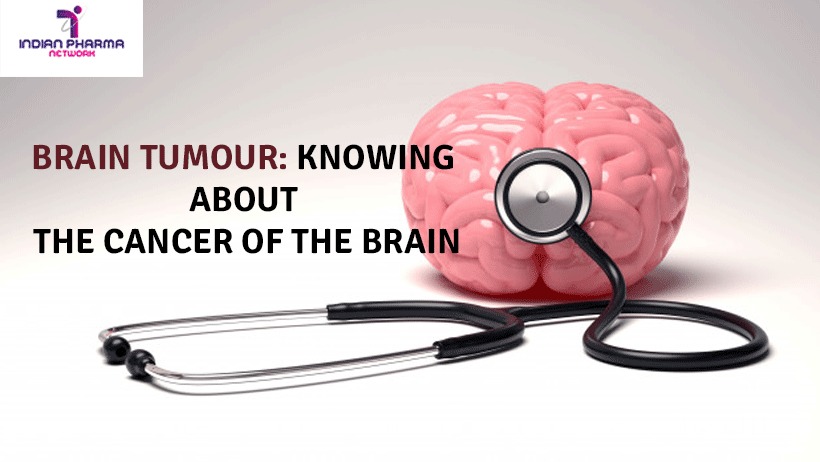Brain Tumour: Knowing about the Cancer of the Brain
The occurrence of a brain tumor in India is steadily rising. The number of brain tumor cases reported each year in our country among people of different age groups. According to the International Association of Cancer Registries, the brain tumor was ranked as the 10th most common kind of tumor among Indians as 28,000 cases of brain tumor were reported in India each year. Among 28,000 cases of a brain tumor in India, more than 24,000 people reportedly die due to brain tumors annually.
A brain tumor diagnosis can feel like a life-threatening situation.
Now, we will be telling you all you need to know about the brain tumor and its treatment.
Knowing Brain Tumour
A brain tumor is a collection, or mass, of abnormal cells in your brain. As the human brain is a skull that has restricted space. Therefore, the extra growth inside the brain can cause more pressure inside the skull, causing threatening complications to the brain.
A brain tumor can be divided into Primary and Secondary brain tumors.
A primary brain tumor is a tumor that develops in the brain. Many primary brain tumors are benign, without any cancerous growth.
A secondary brain tumor is a tumor that has started spreading into other parts of the body like the breasts or lungs but later spread to the brain through the blood. These are always cancerous and never benign.
Knowing the Types of Brain Tumor
Primary brain Tumor
Primary brain tumor can be further categorised into glial and non-glial tumor. They can be benign or cancerous. In adults, the most common types of brain tumor are gliomas and meningiomas.
Gliomas
Gliomas are the tumor that develop from glial cells. The function of the glial cells is:
- To support the structure of your central nervous system
- To provide the nutrition and oxygen to central nervous system
- To clean the cellular waste and break down dead neurons
Examples of glial tumor are:
- Astrocytoma: These originate in cerebrum of the brain
- Oligodendroglial tumor: These originate in brain’s frontal temporal lobes.
- Glioblastoma: These develop in the supportive tissues of the brain and very aggressive tumor.
There are other primary brain tumor, which originates from pituitary gland, pineal gland, ependymomas, craniopharyngiomas, meningiomas, schwannomas and other primary central nervous system lymphomas.
Secondary brain tumor
Secondary brain tumor make up most brain cancers. They start in one part of the body and spread to the brain. These are malignant. The following cancers can metastasize to the brain:
- Lung cancer
- Breast cancer
- Kidney cancer
- Skin cancer
What are risk factors of brain tumors? What are the symptoms of Bain Tumour?
Tumors are caused by uncontrolled cellular mutation and multiplication. Several risk factors can increase the chances of developing a brain tumor:
Radiation: Exposure to ionizing radiation have an increased risk of a brain tumor as there are many situations in life when one can be exposed to nuclear radiation, high-radiation cancer therapies.
Obesity: Being overweight or obese can also increase the risk of developing different types of brain tumors.
Family history: Although, rarely, only 5 to 10 percent of all cancers are genetically inherited.
Age: With the increasing age, the risk of developing cancers and getting a brain tumor.
Chemical Exposure: Being exposed to certain cancer-causing chemicals at workplaces can increase your risk for brain cancer.
Symptoms of Brain Tumor:
As some tumors can cause direct damage by invading brain tissue and some tumors can cause pressure on the surrounding brain. There are various symptoms of brain tumors which depends on the location and size of the tumor:
- Headaches, vomiting, blurred or doubled vision
- Confusion, Seizures, Weakness, Changes in mental functioning
- Memory loss, confusion, difficulty in hearing, smelling, and tasting
- Drowsiness, Loss of consciousness, dizziness, hand tremors, loss of bladder control
- Trouble in speaking or understanding, Changes in mood, personality, emotions, muscle weakness
Though brain tumors diagnosis can be difficult as the doctors will conduct a physical examination through various parts of your body. Your doctor may also evaluate your muscle strength, coordination, memory, and ability to do mathematical calculations. They will conduct CT scans of the body, MRI of, the brain, Angiography of the Heart, Skull X-rays, and biopsies.
Understanding Risks Associated with Brain Tumor Surgery
Brain Tumor surgery is a complicated and serious process. There are various treatment options for brain tumours. Through advanced medical technologies, doctors and surgeons can operate using minimal invasive methods. As brain surgery is a critical procedure and carries some extra risk. There are some complications that are associated with brain tumor. Here are the following risks associated with brain surgery:
- Infection at the incision site or in the brain, Bleeding, Swelling, Blood clots
- Allergic response to anaesthesia, Memory loss, Seizures, Coma, Stroke
However, professionals try their best and ensure that these complications do not arrive through surgeries.
Conclusion
Understanding Aftercare – A Path to Recovery
Post-operative care after brain surgery is extremely important. After the surgery, the attendant or the family must make sure that body is functioning properly. Post-surgery, the attendant must make sure the medication is given on time and the physical postures of the patient are correct as suggested by doctors.
Eating healthy and nutritious food can certainly help you in recovering faster and prevent complications like high blood sugar or blood pressure. Follow the tips that will help in the recovery of the patient:
- Have smaller and more frequent meals instead of 3 large meals a day.
- Avoid hot, spicy food.
- Avoid greasy and oily food, fried stuff, and sweets.
- Have water between meals to stay hydrated
- Initially, eat soft, easily digestible, bland foods.
- Eat foods containing fiber, like fresh fruits and vegetables, and whole grains.
Have lean protein like chicken, fish, nuts, tofu, and beans.
If you or any loved one are facing the above-mentioned symptoms, we recommend you to get your screening done as “Prevention is better than cure”. You can also reach out to the best pharmaceutical consultants at Indian Pharma Network as we will assist you with the best advice and any medication that you need from any part of the globe.
Visit: https://indianpharmanetwork.co.in/
Or
Call Mr. Neeraj Nagpal on 9811747774
References:


